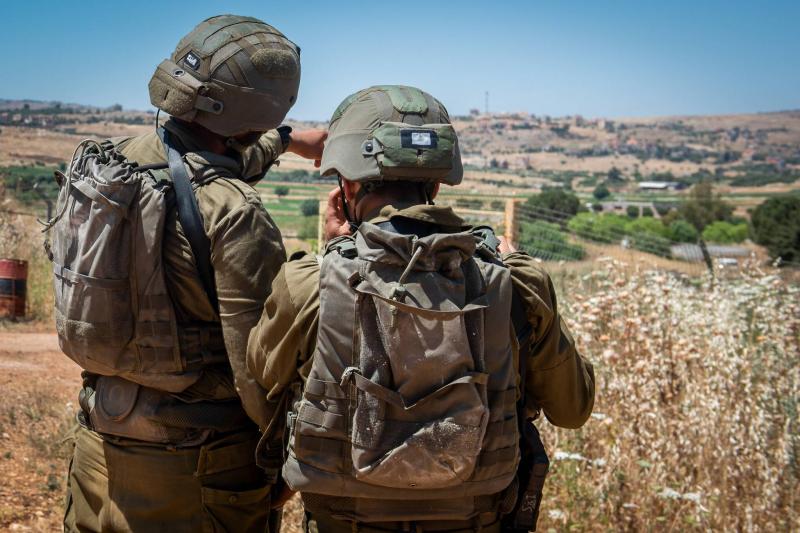Sources have revealed that the United States has advised Israel to refrain from any ground attack on the Gaza Strip, which is controlled by Hamas, while Washington seeks the release of more hostages held by the group and prepares for the possibility of an escalation of the conflict in the Middle East. The sources added that the U.S. administration keeps Qatar, which is mediating efforts with Hamas, informed about these discussions with Israel.
After Hamas attacked Israel on October 7, killing approximately 1,400 people, the United States stood by its ally and emphasized Israel's right to defend itself, publicly stating that Israel would determine the timing of its response to the attack. However, two informed sources indicated that the White House, the Pentagon, and the State Department are currently intensifying their appeals to the Israelis to exercise caution.
This comes as the Israeli blockade on Gaza exacerbates the humanitarian crisis in the area, with continuous Israeli bombardment claiming the lives of over 5,000 Palestinians so far.
According to the sources, one of the U.S. priorities is to allow more time for negotiations regarding the release of hostages taken by Hamas during its attack, especially following the unexpected release of two American hostages on Friday. Hamas announced it released two more hostages yesterday, with over 200 believed to still be held.
An American official stated that the administration, understanding the importance of Qatar’s mediating role with Hamas, continues to inform Qatari officials of its advice to Israel to keep them fully informed as negotiations for the hostages’ release accelerate. A source familiar with the hostage negotiations said, "At the moment, there is no clear roadmap or sequence of steps toward complete de-escalation. The priority is to work on releasing the hostages step by step."
**"Difficult Questions"**
Another U.S. official noted that European governments, whose citizens are among the hostages, are also suggesting to Israel to refrain from a ground assault to allow space for negotiations for their release. The White House said President Joe Biden discussed the hostage crisis and the humanitarian crises in Gaza with leaders from Canada, France, Germany, Italy, and the UK on Sunday.
The primary American official pointed out that alongside negotiations for the hostages, advising Israel to halt its invasion could allow more time for delivering humanitarian aid to Gaza. The United Nations reported that 54 aid trucks have been able to enter Gaza from Egypt since Saturday.
John Kirby, spokesperson for the National Security Council at the White House, stated that Washington has been in discussions with Israel since the start of the conflict "to ensure its intentions, strategies, and objectives while understanding its responses to the difficult questions any military could face."
A U.S. defense official mentioned that Secretary of Defense Lloyd Austin emphasized in multiple phone calls with his Israeli counterpart the need to be prepared for the indirect impacts of a ground attack, including the risks of an expanded conflict in the region, the fate of the hostages, and the humanitarian crisis. U.S. officials are urging Israel to abide by the laws of war should it invade Gaza, home to 2.3 million people.
**Defending Americans**
Israeli officials are increasingly publicly indicating that an invasion of Gaza may be imminent, but none have specified a timeline or whether any plans have been postponed. Israel has called up 300,000 reservists, a record number.
Israeli Deputy Ambassador to Washington Eliav Benjamin told Army Radio today, "We will do what we have to do when we have to do it," downplaying the influence of the United States on plans for the attack.
Israel has indicated since Sunday a shift in tactics by sending ground troops backed by tanks to incursion into Gaza to gather intelligence, leading to clashes with Hamas fighters. Air strikes have also focused on what Israel describes as areas where Hamas gathers its fighters to ambush any invasion.
Advising Israel to stop the ground attack also allows Washington to prepare for any potential retaliatory strikes against American interests in the region amid growing concerns about the conflict's expansion, particularly between Israel and Hezbollah.
U.S. Secretary of State Antony Blinken told NBC on Sunday, "We expect the possibility of escalation... and we are taking steps to ensure that we can effectively defend our citizens and respond decisively if necessary."
Concerns have also grown in Washington regarding some senior Israeli officials, including Defense Minister Yoav Gallant, calling for a preemptive strike against Hezbollah. American officials contend that Israel would have difficulty waging war on two fronts simultaneously if Hezbollah launched a large-scale offensive in the north. Washington has sent aircraft carriers to the eastern Mediterranean to bolster its presence in the region, primarily functioning as a deterrent to Israel's other enemies in the Middle East.




